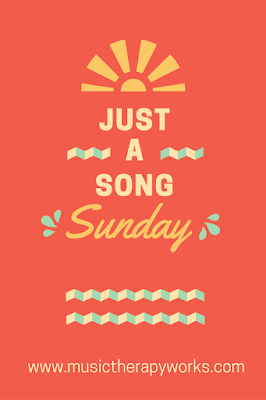Just a Song Sunday: Chord Progressions
 Lately, I've been playing around with a chord progression. I haven't turned it into anything other than the progression yet, and I might never add words, but I am enjoying what happens musically, and I use it to center myself.
Lately, I've been playing around with a chord progression. I haven't turned it into anything other than the progression yet, and I might never add words, but I am enjoying what happens musically, and I use it to center myself.Here is the progression (I use the key of D most often). All of the chord symbols last for the number of indicated beats:
I///IV///I///IV///vi///V7///vi///V7///Repeat
For some reason, this progression is something that helps me focus. I love the juxtaposition of the vi chord in with the others.
I've been playing this for a long time now - for at least 6 months - without being able to do more with it. I've decided that the progression doesn't need a melody at this point. One day it may include a melody and lyrics. Maybe not.
I don't always attend that closely to the harmonic element of music. It is something that I often take for granted, but there are some progressions that stick with me.
I thrill to most of the harmony written by Andrew Lloyd Webber. It isn't easy to explain, but the chords that he selects for songs like "Point of No Return" just thrill me to the core. I don't even have to hear the words to experience the emotion - just the chord progression.
One of the things that I do to play around with harmonics is that I change the mode of familiar songs to unfamiliar ones. I especially love to do this at Halloween - we sing the same familiar words, but the melodies and harmonies change significantly when they are in the phrygian mode instead of the ionian mode. (If you'd like to see an excellent example of how changing the mode can change the character of a familiar song, start here with some of Kyle Fleming's Christmas Carols.) I use it as an exercise for me - it's great to work with modes when you are needing a music theory challenge, and I use it to assess whether my clients are able to distinguish between the familiar and the altered.
I tend to live in ionian/dorian mode most of the time, but there are five other modes to use and play around with. I think it's time to make those other five modes a composition focus for me. I will do some composing this week with the other modes and see what happens musically. If I get REALLY coordinated, I'll record the songs for you to see. (IF!)
Happy Sunday.

Comments
Post a Comment